Technology plays a crucial role in empowering nonprofits to achieve their missions and create a positive impact in their communities. However, limited budgets and resource constraints often pose significant challenges for these organizations. Enter Google Workspace for Nonprofits – a suite of powerful and versatile tools designed specifically to address the needs of nonprofit organizations. By providing access to a range of free productivity and collaboration tools, Google Workspace offers nonprofits the opportunity to enhance their operations, streamline communication, and amplify their impact without straining their financial resources.
In this detailed article, we will explore how nonprofit organizations can leverage Google Workspace’s free tools to make a meaningful difference. From email and document management to video conferencing and data analysis, we are going to delve into the various components of Google Workspace that can revolutionize the way nonprofits operate. Throughout this article, we will provide valuable insights, tips, and best practices to help nonprofit organizations maximize the benefits of Google Workspace. Let’s explore the limitless possibilities and leverage these free tools to create a positive and lasting impact in the world.
Google Workspace for nonprofits
Google Workspace, formerly known as G Suite, is a comprehensive suite of cloud-based productivity and collaboration tools offered by Google. Designed to enhance organizational efficiency and streamline communication, Google Workspace consists of several applications, including Gmail, Drive, Docs, Sheets, Slides, Calendar, Meet, Forms, Sites, and Analytics. While Google Workspace is widely used by businesses and individuals, it also offers a specialized version tailored specifically for nonprofit organizations.

Google Workspace for nonprofits
What sets Google Workspace for Nonprofits apart is its eligibility criteria and the benefits it provides to nonprofit organizations. To qualify for Google Workspace for Nonprofits, organizations must meet certain requirements, such as having valid charitable status in their respective countries. This specialized version of Google Workspace extends various benefits and features to nonprofits, empowering them to amplify their impact without straining their limited resources. The benefits of using Google Workspace for Nonprofits are numerous and significant. Let’s explore some of the key advantages:
Cost savings: Google Workspace for Nonprofits offers access to powerful tools and services at no cost, helping nonprofits save on software expenses. This free access extends to essential applications like Gmail, Google Drive, Google Docs, and more, enabling nonprofits to allocate their financial resources towards their core mission and initiatives.
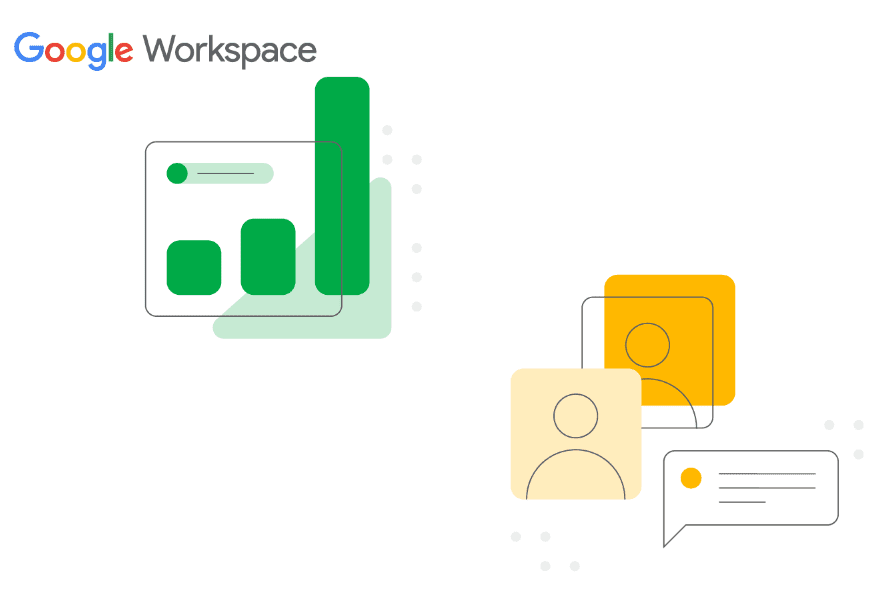
Cost savings
Custom email addresses: Nonprofits utilizing Google Workspace can create professional and customized email addresses using their own domain name. This not only enhances the organization’s credibility but also helps establish a strong online presence.
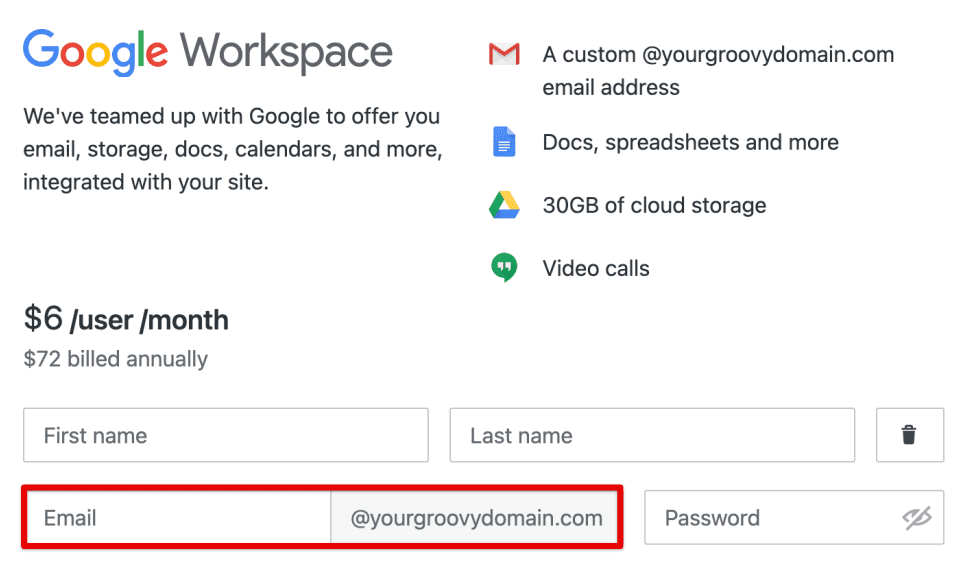
Custom email addresses
Increased storage: Google Workspace for Nonprofits provides significantly larger storage capacity compared to personal Google accounts. Nonprofits can store and access a vast amount of data, documents, and files securely in the cloud, eliminating the need for physical storage solutions and reducing the risk of data loss.
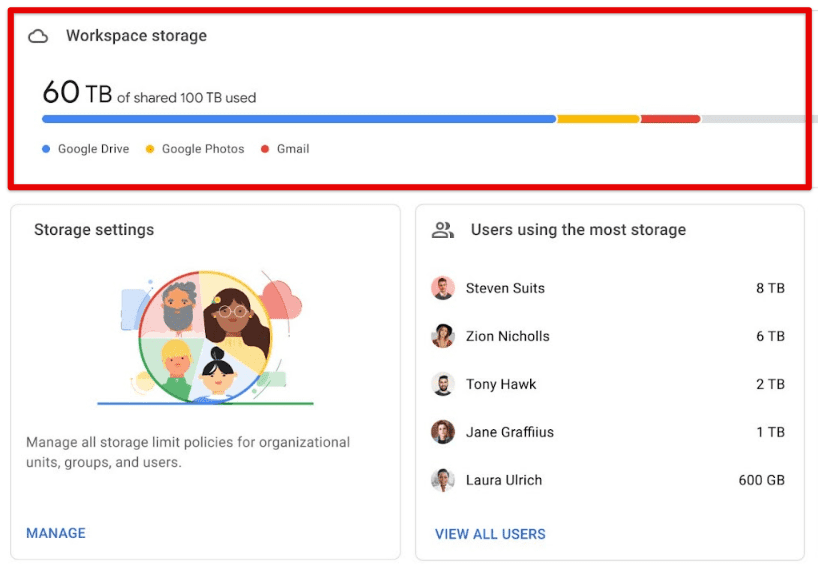
Increased storage
Collaboration and communication: Google Workspace offers a suite of collaborative tools, such as Google Docs, Sheets, Slides, and Google Drive, which facilitate seamless collaboration among team members. Multiple users can work on the same document simultaneously, making it easier to create, edit, and share information in real-time. The integrated commenting and version history features further enhance communication and collaboration within the organization.
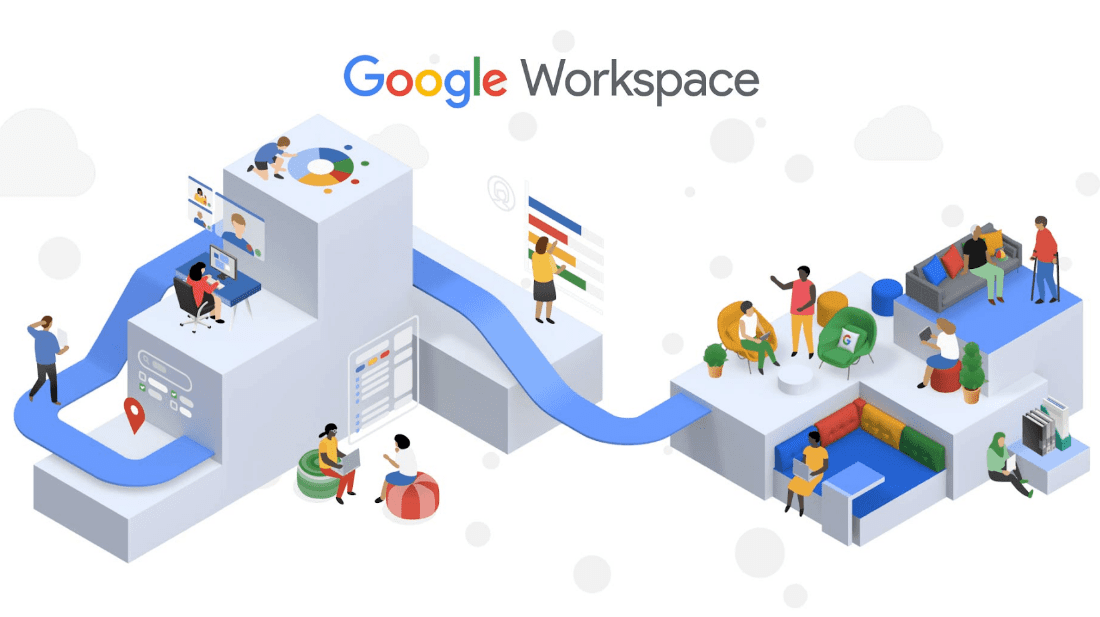
Collaboration and communication
Streamlined scheduling: Google Calendar, an integral part of Google Workspace, allows nonprofits to manage their schedules, appointments, and events efficiently. It simplifies the process of organizing meetings, coordinating team availability, and sending event invitations. With the ability to share calendars, nonprofits can ensure that their team members stay organized and aligned.
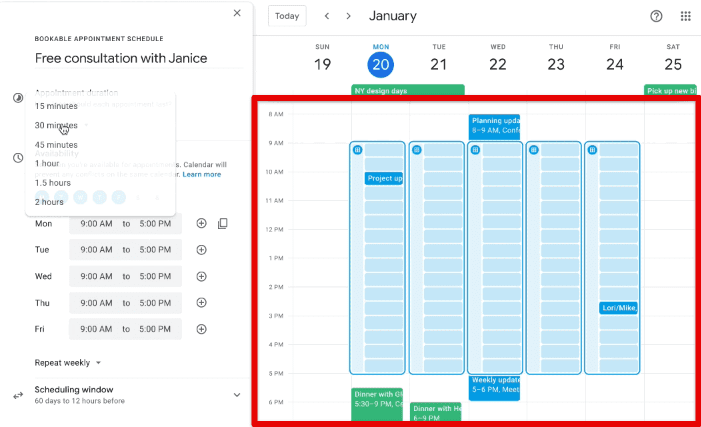
Streamlined scheduling
Video conferencing and virtual meetings: Google Meet, the video conferencing tool in Google Workspace, enables nonprofits to conduct virtual meetings and connect with stakeholders from anywhere in the world. With features like screen sharing, chat, and the ability to record meetings, nonprofits can foster collaboration, hold remote training sessions, and engage with their audience effectively.
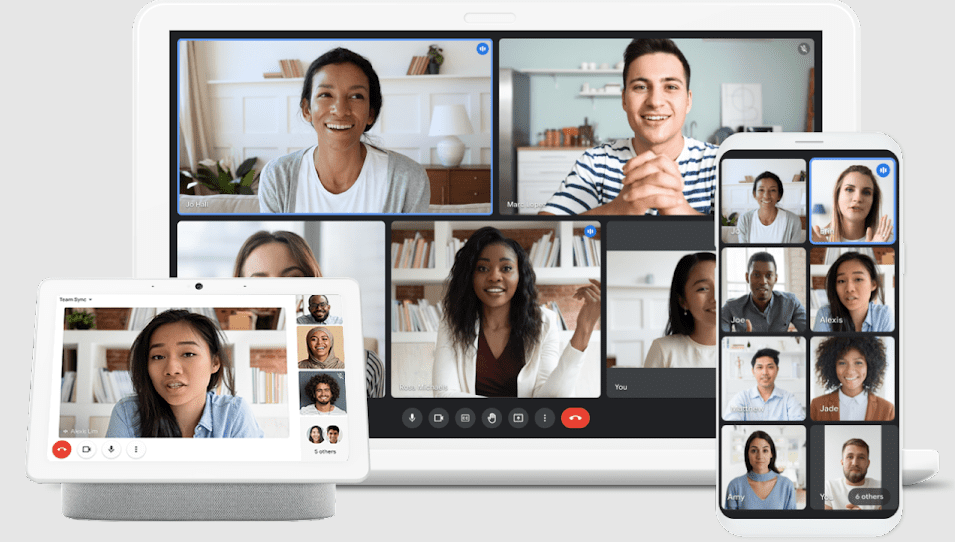
Video conferencing and virtual meetings
Data analysis and insights: With Google Analytics, nonprofits can gain valuable insights into their website traffic, visitor behavior, and campaign performance. This data analysis tool helps nonprofits measure the impact of their online presence, optimize their strategies, and make informed decisions to drive their mission forward.
Eligibility and application process
To qualify for Google Workspace for Nonprofits, organizations must meet specific eligibility criteria. While these criteria may vary slightly from country to country, the following are common requirements for nonprofit organizations to qualify for Google Workspace:
Valid charitable status: Nonprofit organizations must possess a valid charitable status recognized by the respective government or regulatory body in their country. This status is typically granted to organizations that are registered as nonprofit entities, charitable trusts, foundations, or non-governmental organizations (NGOs). Proof of this charitable status is usually required during the application process.
Geographic restrictions: Google Workspace for Nonprofits is available in select countries. Nonprofit organizations must ensure that they are operating within a supported country to be eligible for the program. Google maintains a list of supported countries, and nonprofits should refer to this list to confirm their eligibility.
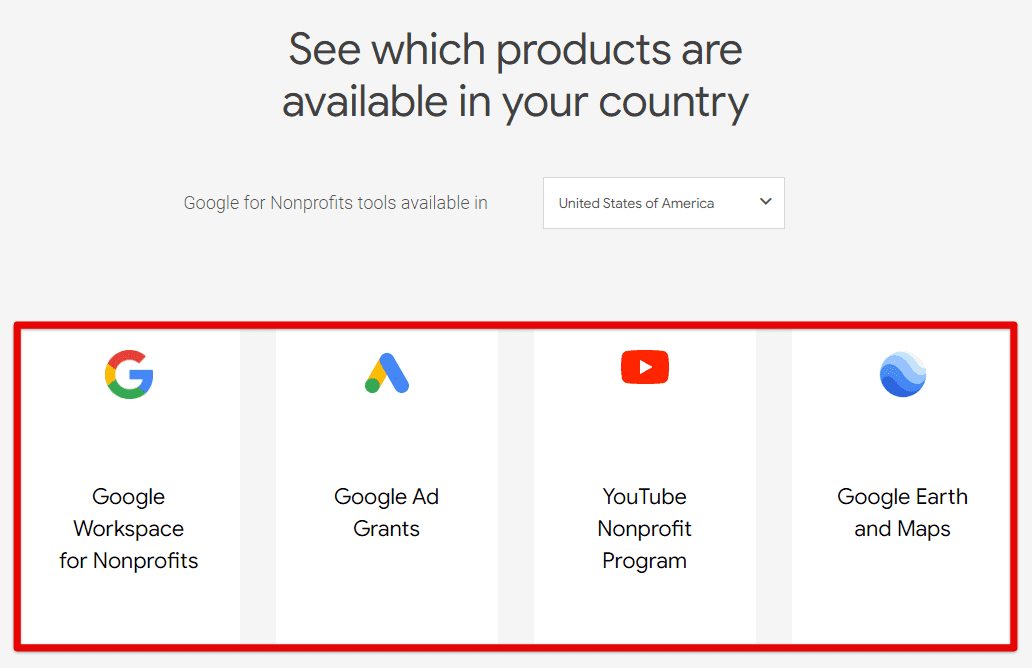
Geographic restrictions
Non-discrimination policy: Nonprofits must adhere to a non-discrimination policy that ensures equal access and opportunity regardless of race, color, religion, gender, sexual orientation, disability, or other protected characteristics. This policy aims to create an inclusive and equitable environment within the nonprofit sector.
Once an organization confirms its eligibility, it can proceed with the application process. The application process for Google Workspace for Nonprofits typically involves the following steps:
Nonprofits need to gather and prepare necessary documents to support their application. These documents may include proof of nonprofit status. This can be in the form of registration documents, tax-exempt certificates, or official letters from the government or regulatory bodies. Basic information about the nonprofit, such as name, address, contact information, and website URL will be required as well. A clear and concise statement that outlines the organization’s mission and objectives is needed too. If they do not already have a Google Workspace account need to create one. This involves creating a Google account for the organization and setting up the initial account settings.
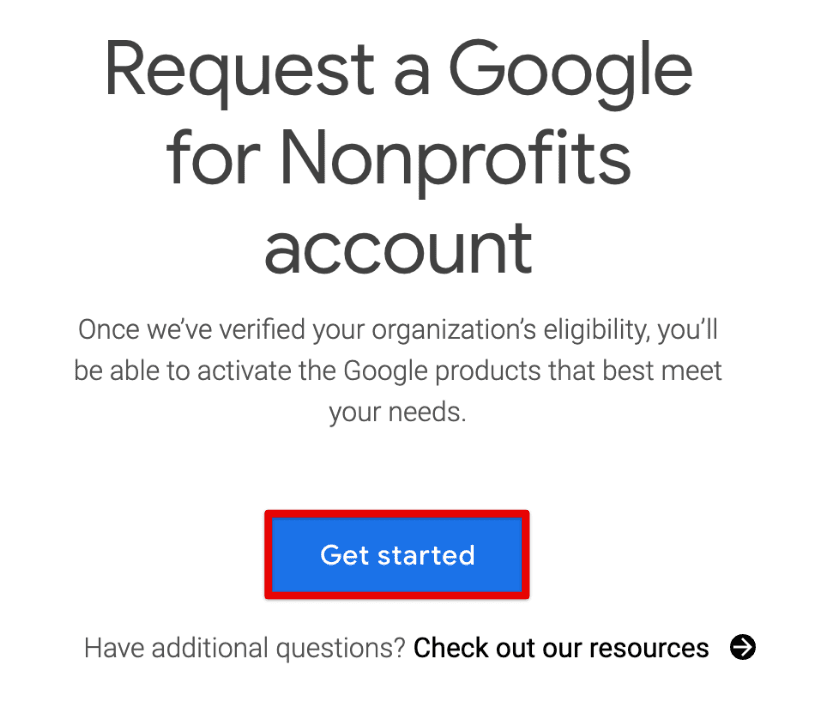
Requesting an account
The organization can access the Google for Nonprofits portal, which serves as the central hub for nonprofit-related applications and resources. From the portal, organizations can navigate to the Google Workspace for Nonprofits application. Nonprofits need to fill out the application form provided by Google. The form typically requires information about the organization, including its name, location, mission statement, and nonprofit registration details. Nonprofits should ensure that the information provided is accurate and up to date. Once an application form is completed, it can be submitted through the online portal. Nonprofits may receive an acknowledgment or confirmation email after submitting the application.
Note: Eligibility and application process may vary slightly depending on the country and specific requirements set by Google. Nonprofits should consult the Google for Nonprofits website or the Google Workspace for Nonprofits application portal for detailed instructions and any updates related to eligibility or the application process.
Gmail
Gmail, one of the core applications in Google Workspace, offers a wide range of features and benefits that can significantly enhance communication and collaboration for nonprofit organizations. With its user-friendly interface, robust security measures, and seamless integration with other Google tools, Gmail empowers nonprofits to streamline their email communication, boost productivity, and create a more professional and efficient workflow.
Custom email addresses: One of the primary advantages of using Gmail for Nonprofits is the ability to create custom email addresses using the organization’s own domain name. Instead of relying on generic email providers, nonprofits can establish a strong online presence and enhance their credibility by having email addresses that reflect their organization’s identity (e.g., [name]@nonprofit.org). Custom email addresses contribute to a more professional image and build trust among stakeholders, including donors, volunteers, and partners.
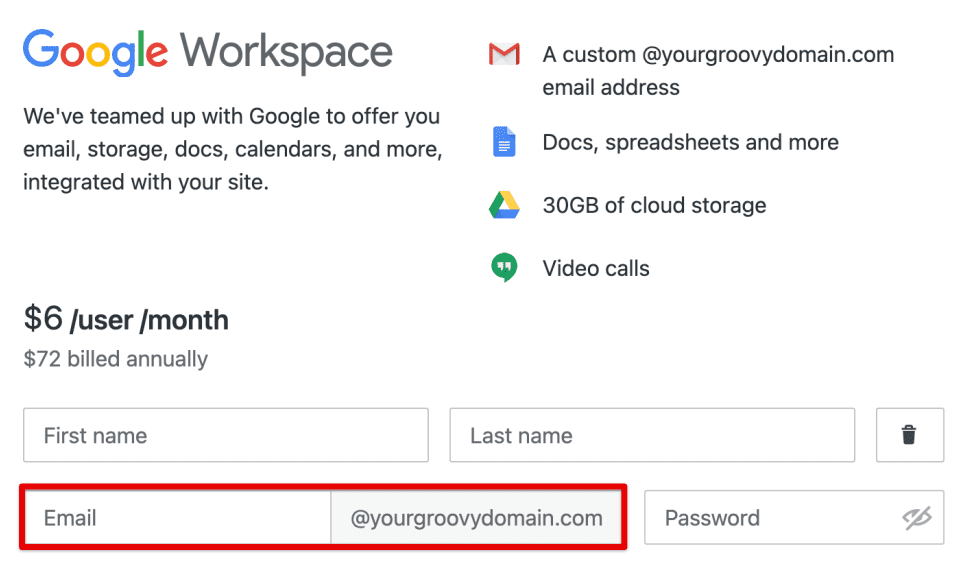
Gmail – Custom email addresses
Increased storage capacity: Gmail for Nonprofits provides significantly larger storage capacity compared to personal Gmail accounts. Nonprofit organizations can enjoy generous storage limits, often ranging from 30GB to unlimited storage, depending on the specific terms offered by Google. This ample storage capacity allows nonprofits to store and access a vast amount of emails, attachments, and other important files, eliminating concerns about running out of space. By having ample storage, nonprofits can effectively manage their email archives, ensuring that critical communications and records are securely retained for future reference.
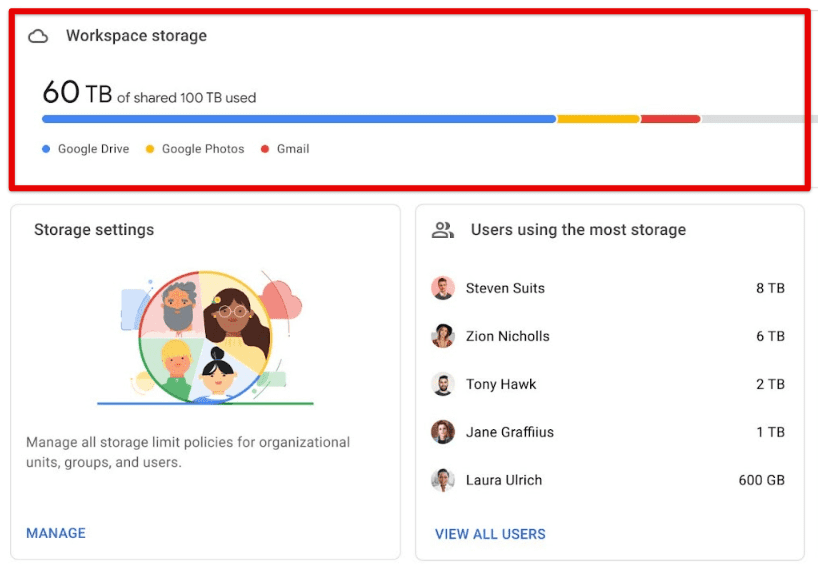
Increased storage capacity
Seamless integration with Google Tools: Gmail seamlessly integrates with other Google Workspace applications, enabling nonprofits to collaborate more effectively and streamline their workflows. For example, nonprofits can attach files directly from Google Drive, which facilitates easy file sharing without the need for large email attachments. By utilizing Google Drive’s shared folders, nonprofits can collaborate on documents, spreadsheets, and presentations directly from their Gmail interface, fostering real-time collaboration and eliminating version control issues.
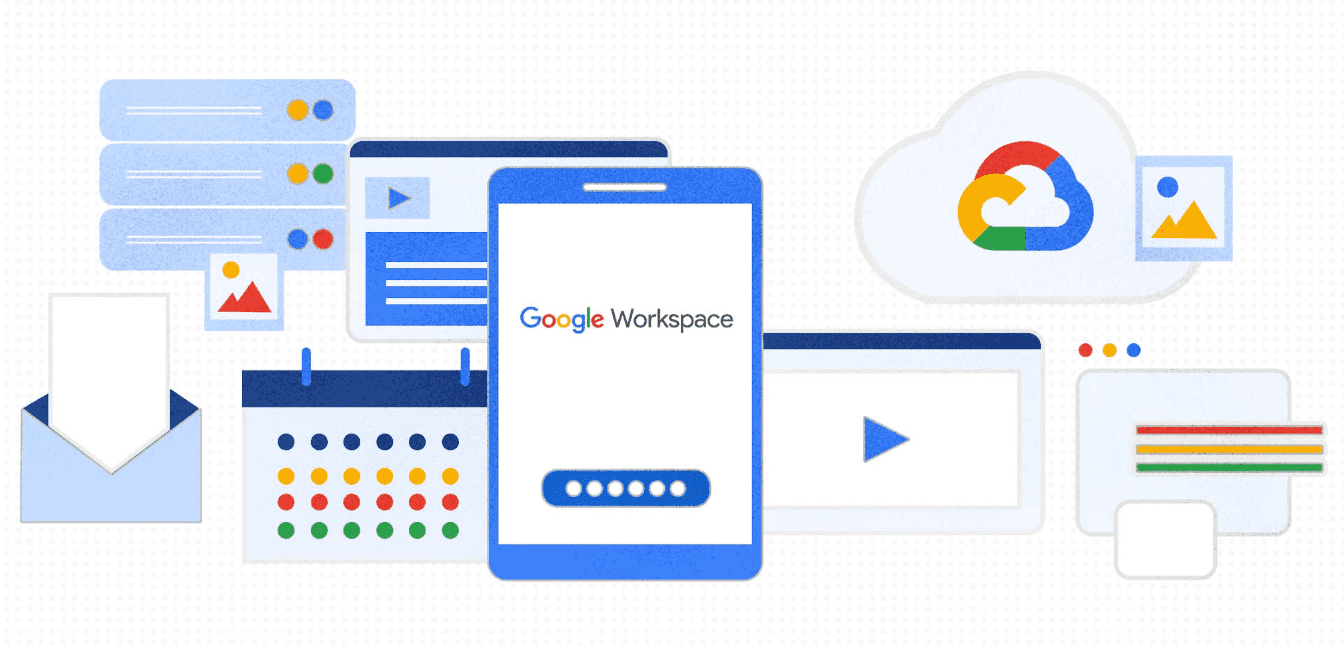
Seamless integration with Google Tools
Advanced search and organization: Gmail’s advanced search capabilities allow nonprofits to efficiently find specific emails, attachments, or conversations using keywords, senders, or dates. This feature is particularly valuable when dealing with a high volume of email correspondence or when searching for critical information within an extensive email history. Additionally, Gmail provides robust labeling and filtering options, empowering nonprofits to organize their inbox effectively. Nonprofits can create custom labels, automatically filter incoming emails into specific categories, and set up rules to prioritize and manage their emails efficiently.
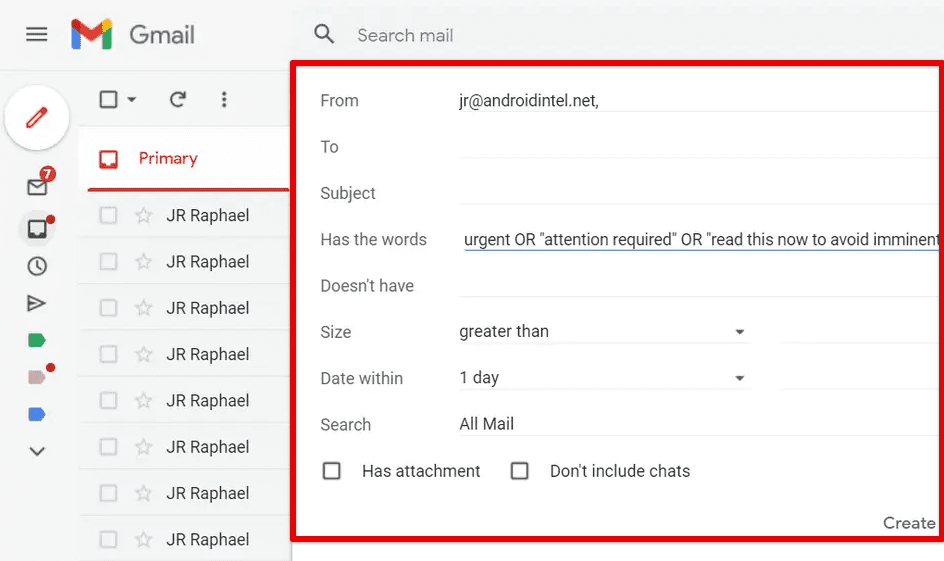
Advanced search and optimization
Mobile access and offline functionality: Gmail is accessible across multiple devices, including smartphones and tablets, ensuring that nonprofits can stay connected and respond to emails while on the go. The Gmail mobile app provides a user-friendly interface and allows nonprofits to send, receive, and manage emails seamlessly from their mobile devices. Furthermore, Gmail offers offline functionality, enabling nonprofits to access and compose emails even when an internet connection is not available. This feature is particularly useful for those working in areas with limited connectivity or during travel.
Google Drive and Docs
Google Drive and Docs are integral components of Google Workspace for Nonprofits, offering powerful cloud storage and collaborative document editing capabilities. With Google Drive as a secure and accessible cloud storage solution and Google Docs, Sheets, and Slides as collaborative document editing tools, nonprofit organizations can enhance their productivity, streamline their workflows, and promote effective teamwork.
Cloud storage solution: Google Drive provides nonprofits with a robust and reliable cloud storage solution. Nonprofits can store and access their files, documents, images, videos, and other resources securely in the cloud, eliminating the need for physical storage devices and reducing the risk of data loss. Google Drive offers ample storage space, often ranging from 30GB to unlimited storage, depending on the specific terms provided to nonprofits. This generous storage capacity ensures that nonprofits can manage and organize their files efficiently, all within a centralized and easily accessible platform.
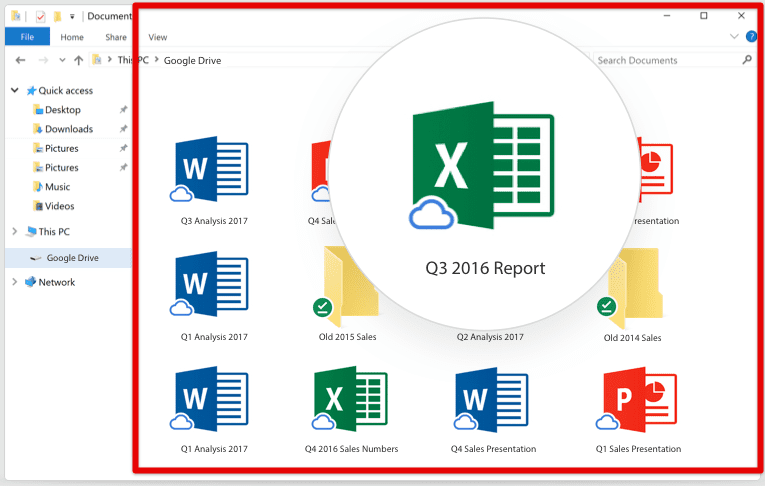
Cloud storage solution
Easy file sharing and collaboration: Google Drive simplifies file sharing and collaboration among nonprofit team members. Nonprofits can easily share files and folders with specific individuals or teams, granting them view or edit permissions as needed. This eliminates the need for emailing large attachments and multiple file versions. By allowing simultaneous editing, multiple team members can work on the same document, spreadsheet, or presentation in real-time, fostering collaboration and streamlining the editing process. This feature is particularly beneficial for distributed teams or organizations with remote volunteers, as it enables seamless teamwork regardless of geographical location.
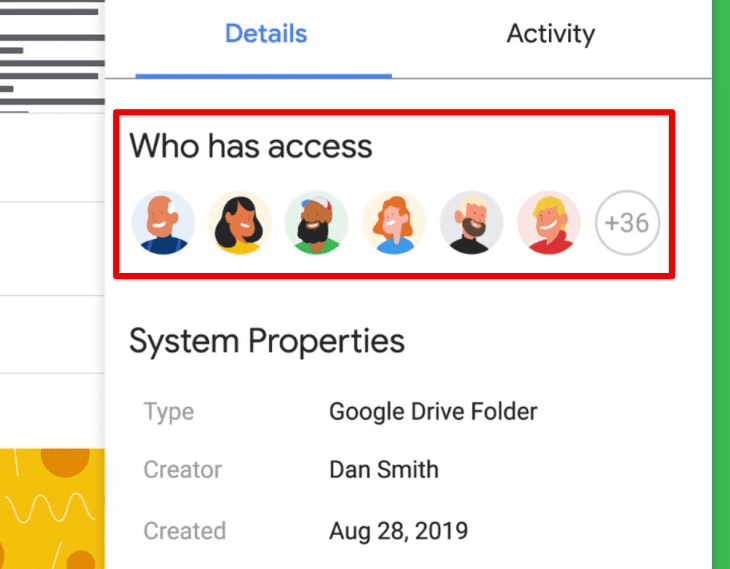
Easy file sharing and collaboration
Version control and revision history: Google Docs, Sheets, and Slides, the collaborative document editing tools within Google Drive, include robust version control and revision history features. Nonprofits can track changes made to documents over time, view previous versions, and easily revert to earlier iterations if required. This functionality ensures transparency and accountability within the document editing process and facilitates effective collaboration among team members. Nonprofits can leave comments, suggest edits, and engage in discussions directly within the document, promoting clear communication and reducing the need for back-and-forth emails.
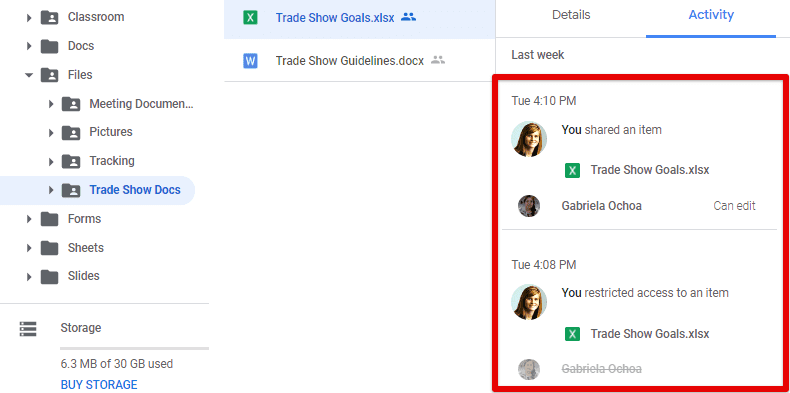
Version control and revision history
Real-time collaboration: Google Docs, Sheets, and Slides enable real-time collaboration, allowing multiple users to work on the same document simultaneously. Team members can see changes happening in real-time, facilitating immediate feedback and input. This real-time collaboration feature significantly enhances productivity and efficiency, particularly for projects that require teamwork, such as grant applications, project proposals, or reports. Nonprofits can harness the collective knowledge and expertise of their team members, resulting in better-quality documents and faster completion of tasks.
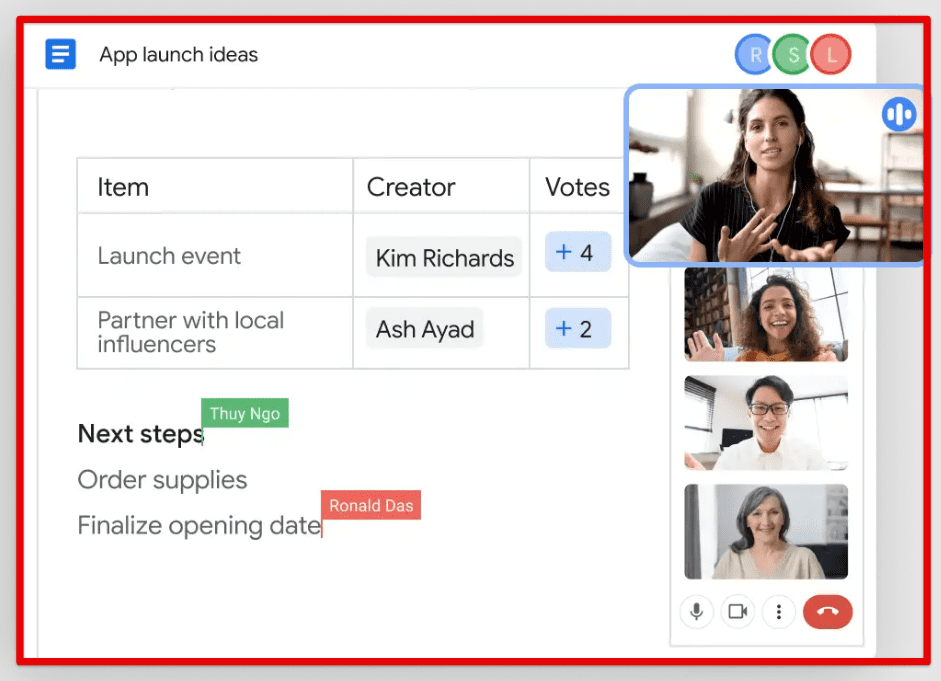
Real-time collaboration
Offline access and syncing: Google Drive and Docs offer offline access and syncing capabilities, allowing nonprofit users to access and edit their files even without an internet connection. Nonprofits can enable offline access for specific files or entire folders, ensuring uninterrupted work productivity while traveling or in areas with limited connectivity. Once an internet connection is established, any changes made offline will automatically sync and update across all devices and collaborators.
Google Calendar
Google Calendar is a versatile tool that offers nonprofits the ability to schedule events, meetings, and reminders efficiently. With its intuitive interface, robust features, and seamless integration with other Google tools, Google Calendar helps nonprofit organizations manage their schedules, coordinate team activities, and stay organized.
Event scheduling and management: Google Calendar allows nonprofits to schedule and manage events with ease. Nonprofits can create events directly within the calendar, specifying details such as event title, date, time, duration, location, and description. Organizations can also add attachments, such as agendas, meeting minutes, or relevant documents, to provide additional context or resources to event participants. Nonprofits can set event reminders to ensure that participants receive notifications in advance, reducing the chances of missed appointments or deadlines.
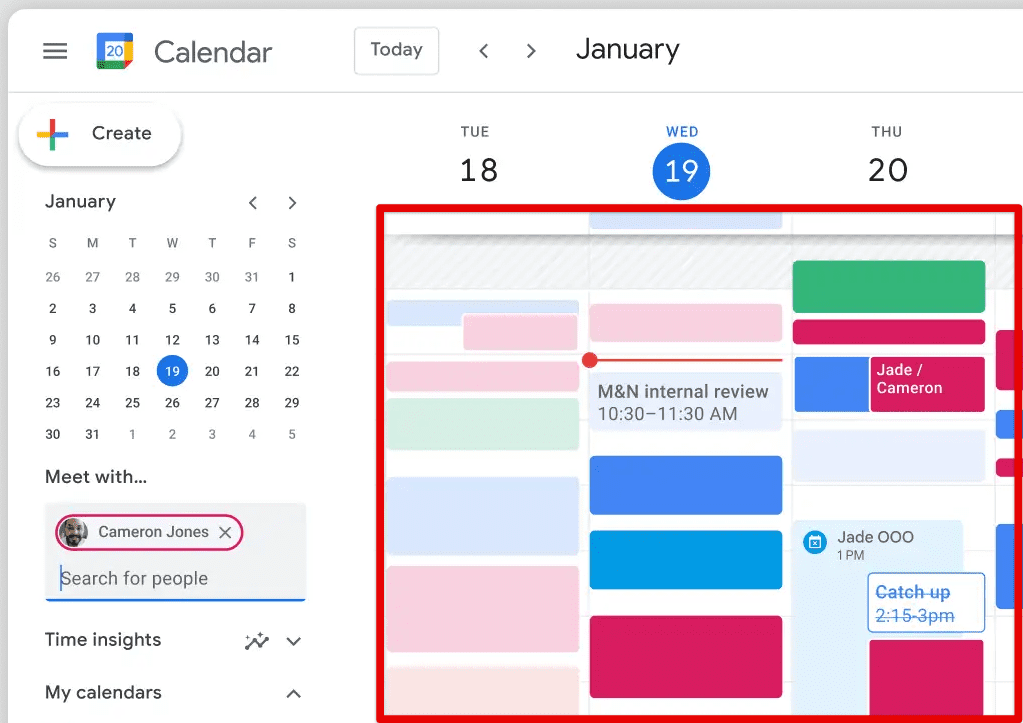
Event scheduling and management
Scheduling and availability: Google Calendar streamlines the process of scheduling meetings, both internally and externally. Nonprofits can create and share meeting availability, allowing team members or external stakeholders to view their available time slots and request meetings. This feature minimizes the back-and-forth communication typically associated with finding suitable meeting times. Additionally, nonprofits can set up automated meeting invitations, which include all necessary details and a direct link to join virtual meetings via Google Meet.
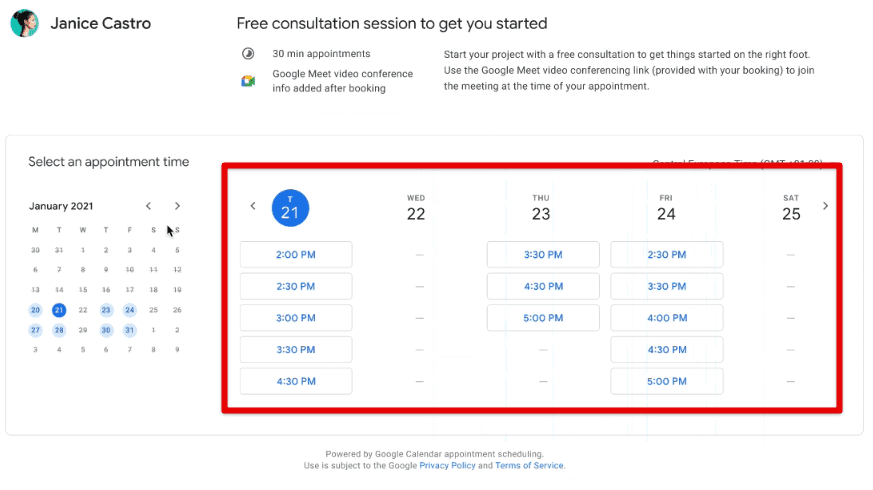
Scheduling and availability
Shared calendars and collaboration: Google Calendar enables nonprofits to create and share calendars with team members, fostering collaboration and coordination. Nonprofits can create separate calendars for different teams, projects, or initiatives, ensuring that relevant individuals have access to the specific events and schedules relevant to their roles. By sharing calendars, team members can view each other’s availability, plan collaborative activities, and avoid scheduling conflicts. This feature is particularly valuable for nonprofits with remote or geographically dispersed teams, as it facilitates communication and ensures that everyone is on the same page.
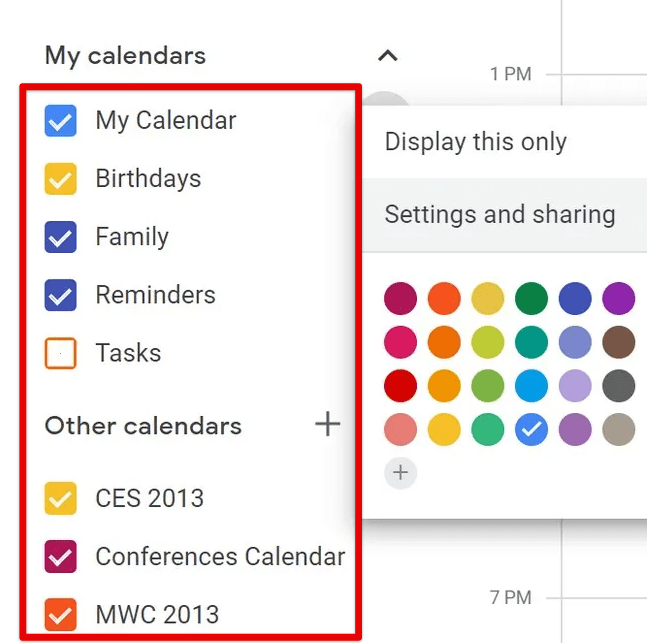
Shared calendars and collaboration
Permissions and access control: Google Calendar offers flexible permissions and access control options for nonprofit organizations. Nonprofits can assign different levels of access to team members, allowing them to view, edit, or manage calendar events based on their roles and responsibilities. This feature ensures that sensitive or confidential information is only accessible to authorized individuals, maintaining privacy and security within the organization. Nonprofits can also create public calendars for events or initiatives that are open to the wider community or stakeholders.
Google Meet
Google Meet is a powerful video conferencing and virtual meeting solution offered within Google Workspace for Nonprofits. With its robust features and user-friendly interface, Google Meet empowers nonprofits to connect with team members, stakeholders, and partners from anywhere in the world. By leveraging Google Meet, nonprofits can enhance collaboration, conduct virtual meetings, and engage in real-time communication.
Video conferencing and virtual meetings: Google Meet provides nonprofits with a reliable platform for video conferencing and virtual meetings. Nonprofits can host meetings with participants from different locations, allowing team members, volunteers, and stakeholders to connect and collaborate seamlessly. With high-quality video and audio capabilities, Google Meet facilitates engaging and interactive virtual meetings, fostering effective communication and reducing the need for in-person gatherings.
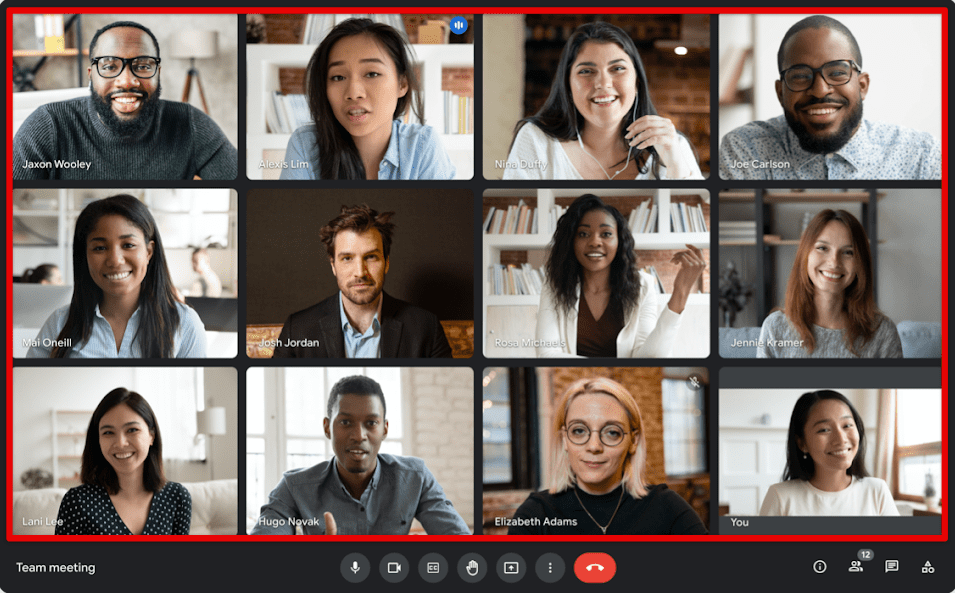
Google Meet – Video conferencing and virtual meetings
Screen sharing and presentations: Google Meet offers screen sharing functionality, enabling nonprofits to share their screens during meetings. This feature is particularly useful for presenting slideshows, demonstrating software or websites, or providing visual aids during discussions. Nonprofits can share their entire screen or select specific windows or applications to share, ensuring that meeting participants have a clear view of the presented content. Screen sharing enhances collaboration and facilitates effective presentations, regardless of the physical location of participants.
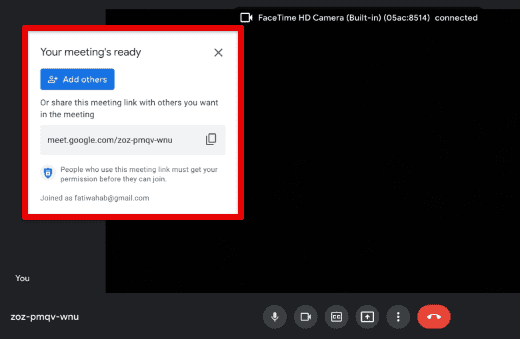
Screen sharing and presentations
Chat and real-time messaging: Google Meet includes a chat feature that allows meeting participants to communicate through real-time messaging during video conferences. Nonprofits can utilize the chat functionality to share links, resources, or additional information related to the meeting. Chat provides a platform for participants to ask questions, provide feedback, or engage in side discussions without interrupting the main audio or video feed. This feature enhances collaboration and ensures that important information or discussions are captured and accessible even after the meeting concludes.
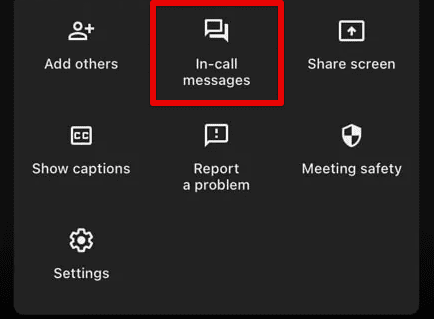
Chat and real-time messaging
Recording and playback: Google Meet enables nonprofits to record their meetings, ensuring that essential discussions and presentations can be revisited or shared with those who were unable to attend. Nonprofits can record both the audio and video components of the meeting, capturing the entire session for future reference. Recorded meetings can be saved to Google Drive, making it easy for nonprofits to access and share the recordings with team members or stakeholders. The ability to record meetings promotes transparency, facilitates knowledge sharing, and allows participants to focus on the discussion without the pressure of taking extensive notes.
Conclusion
Google Workspace offers a suite of powerful tools that are invaluable to nonprofits in enhancing communication, collaboration, and data management. From Gmail to Google Drive, Google Calendar to Google Meet, nonprofits can leverage these tools to streamline their operations, engage with stakeholders, and make decisions based on data-driven insights.
With custom email addresses and increased storage, Google Workspace provides nonprofits with a professional and reliable communication platform. It allows organizations to manage their email accounts efficiently, stay organized, and communicate effectively both internally and externally. Drive serves as a robust cloud storage solution for nonprofits as well, enabling them to securely store and share files with team members and external collaborators. The collaborative features of Docs, Sheets, and Slides facilitate real-time collaboration, version control, and seamless document sharing, making it easier for these organizations to work together and create impactful content.
